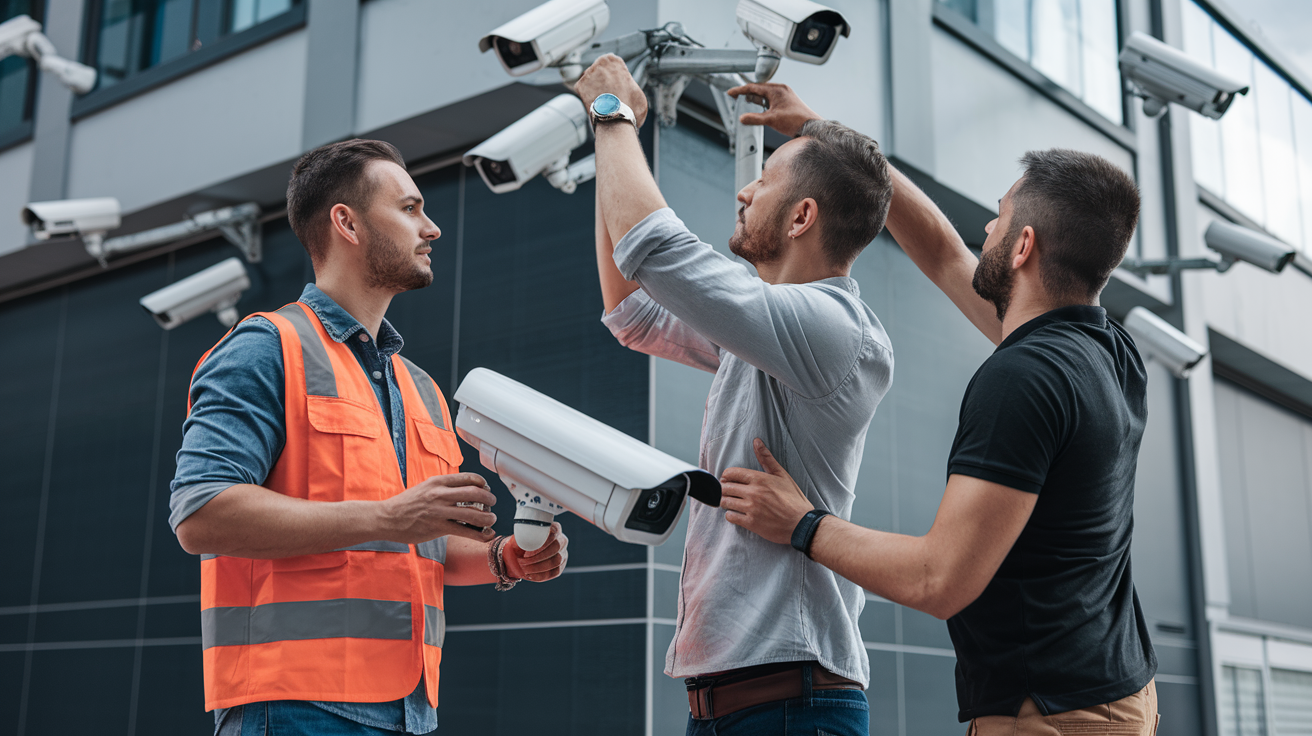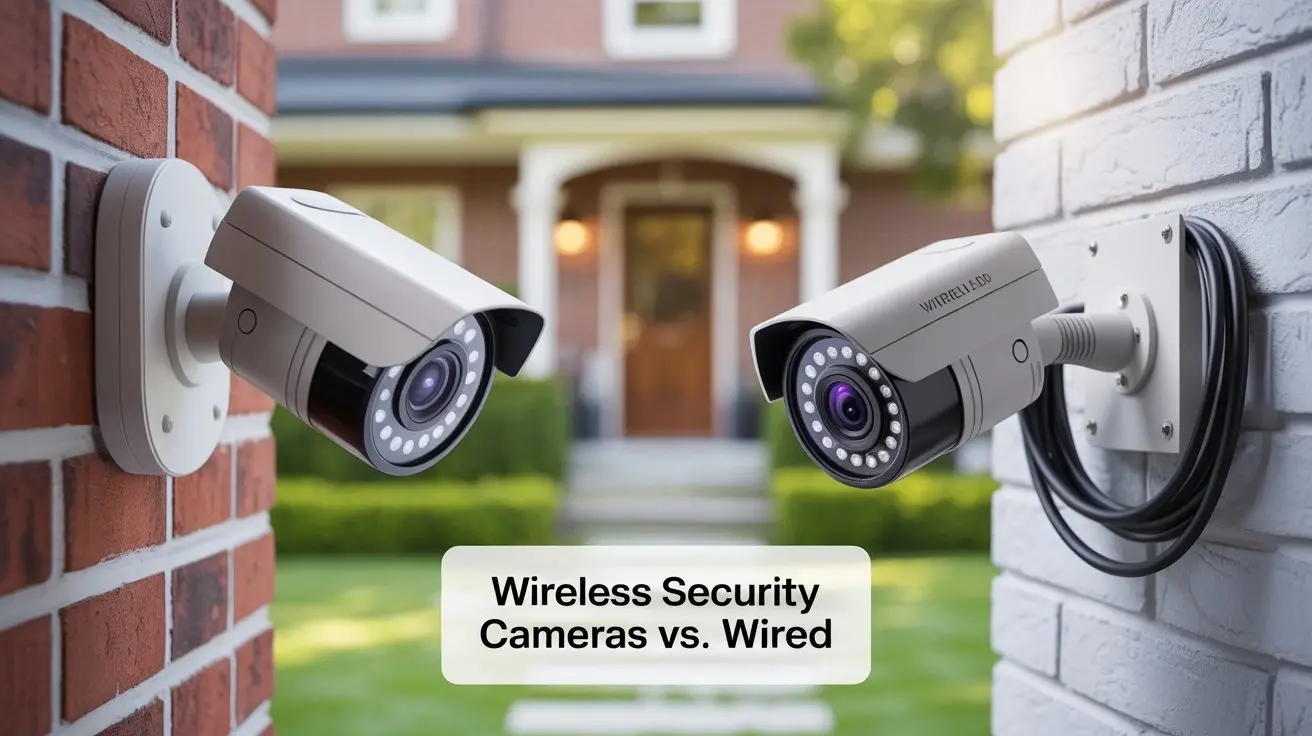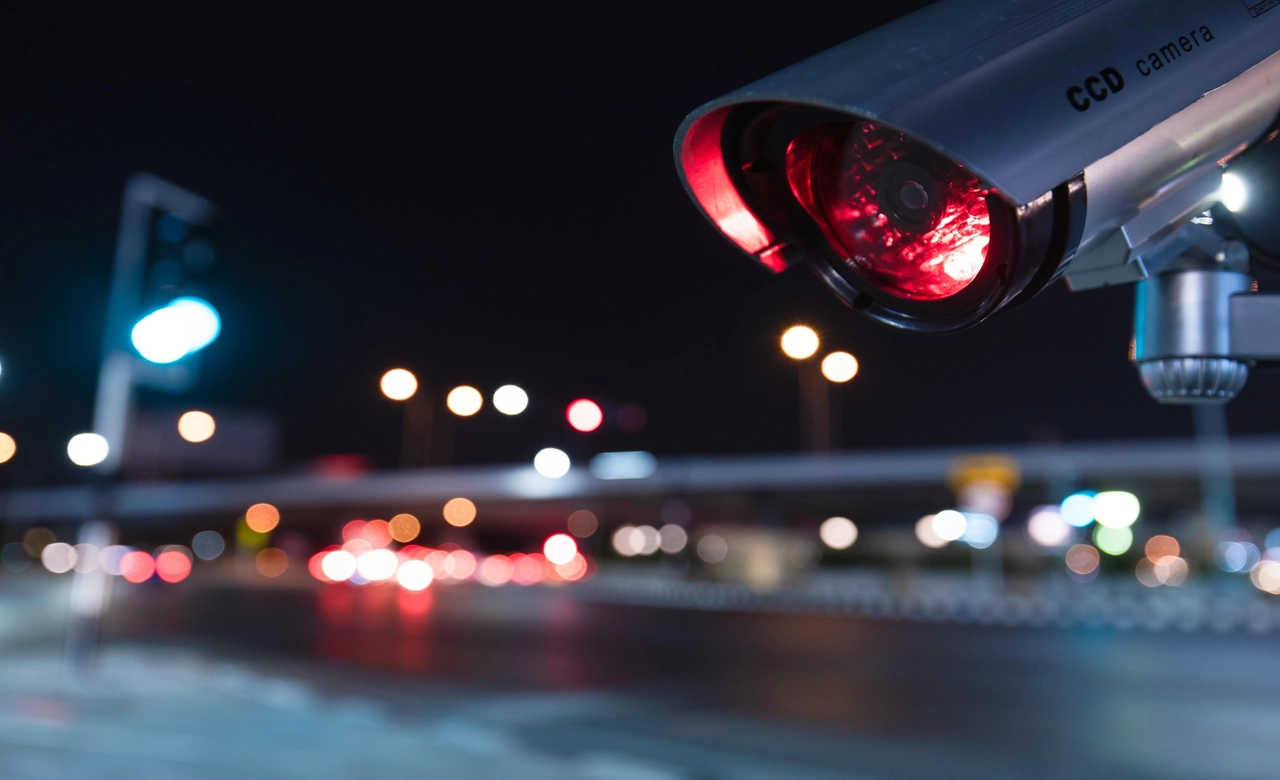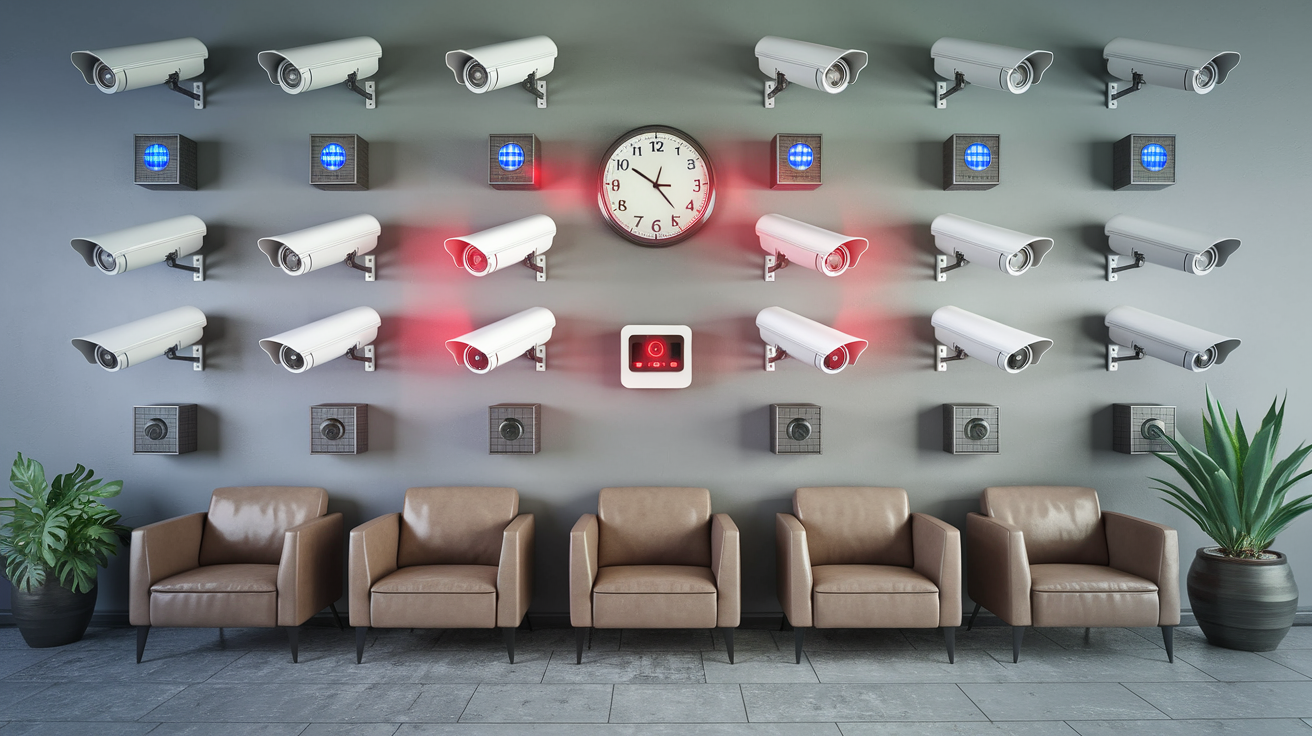Who Installs Security Cameras?
Installing security cameras is a critical step in enhancing the safety of your home or business. Whether you’re looking to deter intruders, monitor deliveries, or keep an eye on your property, proper installation ensures optimal performance and coverage. Security cameras can be installed by a variety of professionals and, in some cases, by homeowners themselves. This comprehensive guide explores who installs security cameras, the benefits and drawbacks of each option, and key considerations to ensure a successful setup in 2025.
Who Can Install Security Cameras?
Security camera installation can be performed by several types of individuals or services, depending on the complexity of the system, your technical expertise, and your budget. Below are the primary options for who installs security cameras:
- Professional security companies
- Independent security installers
- Electricians or low-voltage technicians
- General contractors or handymen
- DIY (Do-It-Yourself) by homeowners or business owners
Each option has unique advantages, costs, and suitability depending on the type of system (wired, wireless, or smart cameras) and the installation environment (indoor, outdoor, residential, or commercial).
Note: The best installer depends on your system’s complexity, your property’s layout, and whether you need ongoing monitoring or maintenance.
1. Professional Security Companies
Professional security companies, such as ADT, Vivint, or SimpliSafe, offer comprehensive installation services, often bundled with monitoring subscriptions. These companies employ trained technicians who handle everything from site assessments to final setup.
Pros
- Expertise: Technicians are trained specifically for security systems, ensuring proper placement and configuration.
- Integrated Solutions: They can install cameras alongside alarms, sensors, and smart home devices for a cohesive system.
- Professional Monitoring: Many offer 24/7 monitoring services, ideal for high-security needs.
- Warranty and Support: Installations often come with warranties and ongoing technical support.
Cons
- Cost: Installation fees can range from $100–$500, with monthly monitoring subscriptions adding $20–$60/month.
- Contracts: Many companies require long-term contracts, limiting flexibility.
- Limited Customization: You may be restricted to the company’s proprietary equipment.
Best For
Professional security companies are ideal for those seeking a full-service solution, especially for large homes, businesses, or systems requiring professional monitoring. For example, ADT’s technicians can install complex systems like the ADT Command with multiple cameras and sensors.
2. Independent Security Installers
Independent security installers are licensed professionals who specialize in security systems but are not affiliated with a specific brand. They often work as contractors or small businesses, offering tailored services.
Pros
- Flexibility: They can install a wide range of cameras, including third-party brands like Eufy, Reolink, or Arlo.
- Custom Solutions: Installers can design systems specific to your property’s needs, such as covering blind spots or integrating with existing setups.
- Competitive Pricing: Rates are often lower than large security companies, with installation fees typically $50–$200 per camera.
- Local Expertise: Local installers understand regional weather or crime patterns, optimizing camera placement.
Cons
- Varying Quality: Installer expertise can vary, so research credentials and reviews carefully.
- No Monitoring: Most independents focus on installation only, requiring you to arrange monitoring separately.
- Limited Support: Post-installation support may depend on the installer’s availability.
Best For
Independent installers are suitable for homeowners or businesses wanting a customized, brand-agnostic system without long-term contracts. They’re especially useful for complex wired systems or unique property layouts.
Warning: Always verify an independent installer’s licensing and insurance to avoid liability for faulty work.
3. Electricians or Low-Voltage Technicians
Electricians, particularly those specializing in low-voltage systems, are qualified to install wired security cameras and related infrastructure, such as Power over Ethernet (PoE) systems.
Pros
- Technical Expertise: Electricians are skilled in running cables, installing power supplies, and ensuring compliance with electrical codes.
- Reliable Wiring: They can handle complex wiring for PoE or NVR/DVR systems, ensuring stable connections.
- Safety Compliance: Licensed electricians ensure installations meet local building codes, reducing risks of electrical issues.
Cons
- Higher Costs: Fees can range from $75–$150 per hour, depending on the region and complexity.
- Limited Camera Knowledge: Some electricians may lack expertise in configuring camera software or smart features.
- No Monitoring Services: Electricians typically focus on installation, not ongoing support or monitoring.
Best For
Electricians are best for wired camera systems, especially in commercial settings or homes requiring extensive cabling, such as Lorex or Reolink PoE systems.
4. General Contractors or Handymen
General contractors or handymen can install security cameras, particularly for simpler wireless systems or small-scale projects.
Pros
- Affordability: Handymen often charge lower rates ($40–$100 per hour) than specialized installers.
- Versatility: They can handle related tasks, like mounting cameras on various surfaces or integrating with other home improvements.
- Convenience: Ideal for small projects or when you’re already working with a contractor for renovations.
Cons
- Limited Expertise: Handymen may lack specialized knowledge of security systems, leading to suboptimal placement or setup.
- No Licensing: Many handymen are not licensed for electrical work, which can be risky for wired systems.
- Variable Quality: Results depend heavily on the individual’s experience with security cameras.
Best For
Handymen are suitable for simple wireless camera installations, such as Blink Outdoor 4 or TP-Link Tapo C120, in homes or small businesses.
Note: For wired systems, ensure the handyman has electrical experience or hire a licensed electrician for safety.
5. DIY Installation
Many modern security cameras, especially wireless models like Ring, Arlo, or Eufy, are designed for DIY installation, allowing homeowners or business owners to set them up without professional help.
Pros
- Cost Savings: Eliminates installation fees, which can save $100–$500 depending on the system.
- Flexibility: You control the placement, setup, and configuration to suit your needs.
- User-Friendly: Brands like Blink and Google Nest provide intuitive apps and mounting kits for easy setup.
- Learning Opportunity: Gain familiarity with your system for future maintenance or upgrades.
Cons
- Technical Challenges: Wired systems or complex setups (e.g., PoE or NVR) may require advanced skills.
- Time-Consuming: Installation can take hours, especially for multiple cameras or difficult mounting locations.
- Suboptimal Results: Incorrect placement or configuration may reduce camera effectiveness.
Best For
DIY installation is ideal for tech-savvy individuals installing wireless cameras in small homes or apartments, such as the Eufy SoloCam S340 or Ring Outdoor Camera Plus.
How to Choose the Right Installer
Selecting the best installer depends on several factors:
- System Type: Wired systems (e.g., Lorex PoE) often require electricians or professional installers, while wireless systems (e.g., Arlo Pro 5S) are DIY-friendly.
- Budget: DIY is the cheapest, followed by handymen, independent installers, electricians, and security companies.
- Property Size: Large properties or commercial spaces benefit from professional or electrician installations for comprehensive coverage.
- Monitoring Needs: If you want 24/7 monitoring, choose a security company like ADT or Vivint.
- Local Regulations: Check local codes for electrical or permitting requirements, especially for wired systems.
Warning: Improper installation, especially for wired systems, can lead to electrical hazards or voided warranties. Verify installer credentials and system requirements.
Tips for Successful Installation
Regardless of who installs your cameras, follow these tips to ensure optimal performance:
- Plan Camera Placement: Position cameras 8–10 feet high, covering entry points like doors, windows, and driveways.
- Check Wi-Fi Strength: For wireless cameras, ensure a strong Wi-Fi signal to avoid connectivity issues.
- Test Before Finalizing: Test camera angles and motion detection before permanently mounting.
- Secure Cables: For wired systems, use conduit or cable clips to protect wiring from weather or tampering.
- Maintain Regularly: Clean lenses monthly and check for firmware updates to maintain performance.
Costs of Professional Installation
Installation costs vary by provider and system complexity:
- Security Companies: $100–$500 upfront, plus $20–$60/month for monitoring.
- Independent Installers: $50–$200 per camera, depending on complexity.
- Electricians: $75–$150 per hour, typically 2–4 hours for a small system.
- Handymen: $40–$100 per hour, suitable for simple installations.
- DIY: Free, excluding tools or mounting hardware (around $10–$50).
Conclusion
Security cameras can be installed by professional security companies, independent installers, electricians, handymen, or through DIY efforts, each offering distinct advantages. Professional companies like ADT provide full-service solutions with monitoring, while independent installers offer flexibility and customization. Electricians excel at wired systems, handymen are cost-effective for simple setups, and DIY is ideal for wireless cameras and tech-savvy users. By considering your system type, budget, and property needs, you can choose the right installer to ensure your security cameras are optimally placed and configured, providing reliable protection for your home or business.






